Premium Only Content

Beijing Threatens Congress Over Schumer's Bipartisan Bill
A fight is fermenting among Beijing and Washington. This one isn't quite so straightforward as the 2019 "exchange war" organized by The Trump White House and is creating behind warm discussions between President Biden and Premier Xi, however it is no less savage along these lines.
On one side in this battle stands Senate Majority Leader Chuck Schumer, Democrat of New York, and the United States Congress, the two sides of the isle. On the opposite side stands China's Foreign Affairs Committee of the National People's Congress and China's Ambassador to the United States Qin Gang. The issue is Senator Schumer's monstrous U.S. Advancement and Competition Act (USICA). China guarantees that it is a club with which to beat China on exchange, innovation, and network safety assaults in addition to other things. The great representative concurs yet says China deserves it with its out of line and unscrupulous exchange rehearses. China has clarified that it will fight back assuming this bill becomes law.
Congressperson Schumer's bill particularly mirrors the broadly felt against China feeling in Congress. It assembles under its umbrella a few more modest bills that have as of now been presented, noticeable among them the Endless Frontiers Act, initially set forward by Republican Todd Young of Indiana, and the Meeting the Chinese Challenge Act, initially set forward by Democrat Sherrod Brown of Ohio and Republican Pat Toomey of Pennsylvania. Schumer's monstrous piece of enactment (2,276 pages) has as of now passed the Senate yet holds up a vote in the House of Representatives.
The composite bill, as anyone might expect, has an extraordinary assortment of arrangements. Among them, it would demand "purchase American" in any Washington financed matter. It would boycott, to the degree legitimately conceivable, the acquisition of Chinese made robots and electric vehicles and preclude any administration server to associate with a Chinese interpersonal organization. It would incorporate measures to upset network protection assaults on any U.S. government office and compulsory authorizations in light of any Chinese
Supported burglaries of protected innovation or innovation. It is assessed to influence some $250 billion in exchange and financial movement.
The proposed enactment has insulted Beijing, however large numbers of its arrangements emulate the manner in which China arranges the cards in favor if its economy and its exchange with the remainder of the world. The Foreign Affairs Committee of the National People's Congress has portrayed the USICA as an endeavor to "contain China's advancement under the pennant of development and rivalry." Though Beijing presently can't seem to disclose how it would fight back, scarcely any uncertainty, given Beijing's activities before, that it would wonder whether or not to do as such. Duties, in any case, are far-fetched. Later the strains China endured during the 2019 "exchange battle" with the Trump White House, the last thing Beijing needs is to move matters toward that path. Furthermore given the extreme line taken by U.S. Exchange Representative Katherine Tai her new discussions with Vice Premier Liu He, Beijing realizes that Washington could take that way once more. China hands presume that reprisal would almost certainly target products of
Parts required by homegrown U.S. makers.
China's Washington international safe haven has been particularly dynamic in this. Diplomat Qin Gang has communicated his shock and that of his administration. He has distinguished approximately 260 bills in Congress that he depicts as having "negative China content." He has summarized them, singling out the USICA, as an endeavor to "seize China-U.S. relations and seriously harm America's own advantages." He has likewise marshaled his staff to campaign all U.S. firms of importance (verifiably undermining those that as of now have interests in China) to overcome Senator Schumer's bill and bits of enactment like it.
This nervousness might go no place. The bill actually holds up a vote in the House, and Speaker of the House Nancy Pelosi presently can't seem to show when or regardless of whether such a vote will occur. Congress has a lot of business to finish, so this issue might stand by a surprisingly long time to stand out enough to be noticed a lot
Less that of President Biden. To be sure, should it pass the House and show up at the president's work area, there are no confirmations that he will sign it into law. He has on occasion talked intense on China, however its wide scope of arrangements could without much of a stretch cross paths with organization drives or significant bureau secretaries. All things considered, it appears like Congress has the notorious piece in its teeth with regards to China, and with the mid-term political race approaching in 2022, all will observe the public's enemy of China feeling.
-
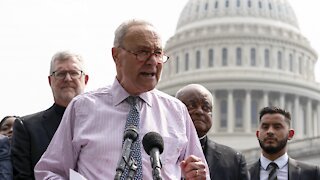 2:30
2:30
Newsy
3 years agoPartisan Disagreement Stalls Bipartisan Priorities In Congress
64710 -
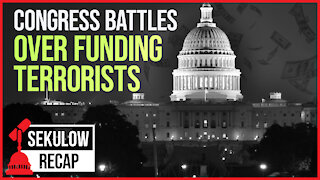 5:19
5:19
American Center for Law and Justice
3 years agoCongress Battles Over Funding Terrorists
1.05K8 -
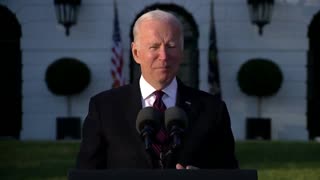 2:08
2:08
The Daily Caller
3 years agoBiden Touts Bipartisan Nature Of Infrastructure Bill
6.37K29 -
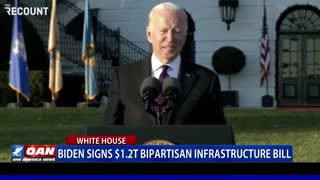 2:50
2:50
One America News Network
3 years agoBiden signs $1.2T bipartisan infrastructure bill
73147 -
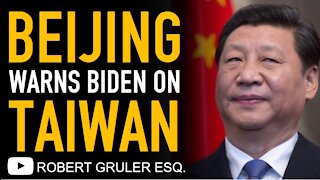 38:48
38:48
Robert Gouveia
3 years agoBeijing Threatens Biden on Taiwan and History of China-Taiwan Conflict
42316 -
 5:33
5:33
No Spin News with Bill O'Reilly
3 years agoPolitical Division Threatens America | Bill O'Reilly
2.84K38 -
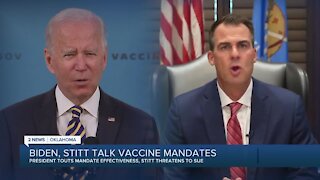 2:36
2:36
KJRH
3 years agoStitt threatens to sue over Biden vaccine mandate
5688 -
 7:45
7:45
The Jimmy Dore Show
3 years agoFauci Confronted Over Lying To Congress
5.59K37 -
 2:59
2:59
WFTS
3 years agoCongress returns to debate infrastructure bill
963 -
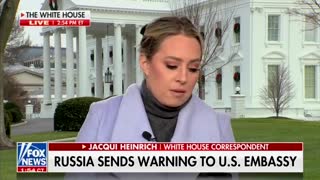 1:47
1:47
Danielle D'Souza Gill
3 years agoMoscow Threatens America Over Russian Border Missions
581